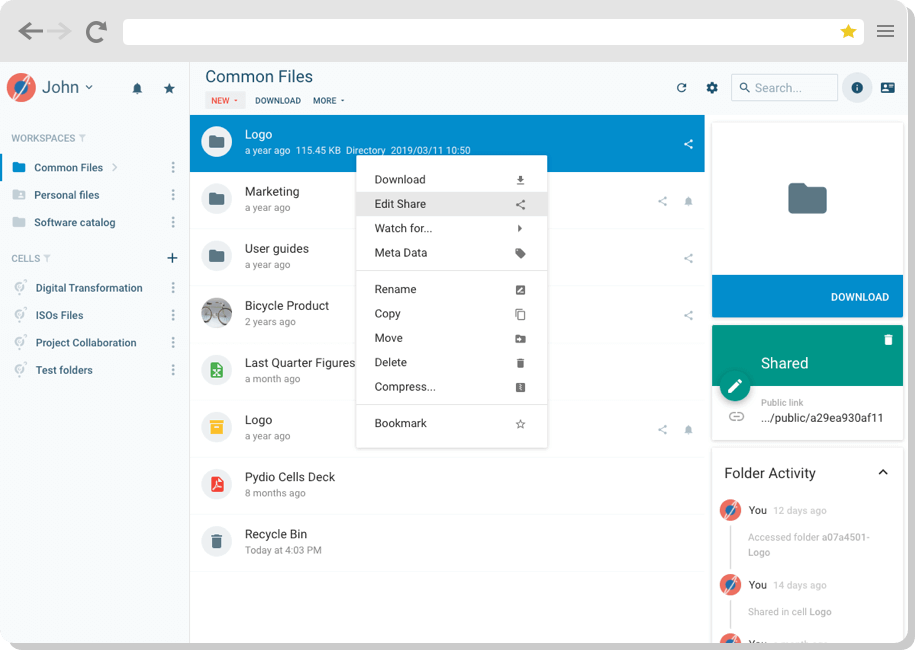Secure Data Room Software Guide for 2025
Explore the enterprise guide to secure data rooms in 2025. Learn use cases, essential features, and how Pydio Cells delivers control, compliance, and...
We are committed to the open-source ethos. And though we now also develop paid enterprise versions of our software, that commitment has never wavered. Everything we do is built on an open core.

We are committed to the open-source ethos. And though we now also develop paid enterprise versions of our software, that commitment has never wavered. Everything we do is built on an open core.
Ever since the early days, back in 2010, before the advent of file-sharing tools like Dropbox, our founder Charles du Jeu set about creating a tool to help musicians share large files and collaborate on projects, and AjaXplorer was born. Two years later, driven by customer demand, Charles and the other founders launched a business to support businesses who wanted to use AjaXplorer for professional and governmental applications. Over the years, the name has changed, the architecture has evolved, and thousands of organizations now use the product to share and collaborate securely. What hasn’t changed is our commitment to the open-source community.
Cells Home, our entry-level platform meant for individual use, is still a free download. Its code is open (AGPLv3), and it will always be. It provides all the tools needed for personal use without any restrictions on users or storage.
The answer is easy. We asked business users, who can afford business-critical tools, to pay. We built Cells Enterprise, which adds modules to Cells Home that individual users don’t require, including functionality like SSO, compliance features, and radical scalability. But both products share the same open-core codebase and the same level of care and attention to detail. This strategy has allowed us to grow revenue while keeping quality high in both Home and Enterprise versions. The Home edition is even available to businesses and organizations who don’t feel they need the enterprise edition's added functionality, automation, and scalability.
But being “open source” isn’t just a matter of altruism. Because we are the “secure” sharing and collaboration platform, a key benefit of being open core is that multiple developers regularly audit our source code for security both in terms of privacy (no spy in the code) and vulnerabilities (that always turn up in any software). This base of motivated testers is a key asset in our constant efforts to make Pydio Cells as secure as possible.
Check out our codebase on Github!
Yours,
The Pydio Team
Want to stay up to date with everything Pydio? That’s easy. Just subscribe to our newsletter or follow us on LinkedIn.
.png?width=960&name=Oliver%20blog%20(24).png)
Explore the enterprise guide to secure data rooms in 2025. Learn use cases, essential features, and how Pydio Cells delivers control, compliance, and...
.png?width=960&name=Oliver%20blog%20(23).png)
Explore the complete guide to ECM software. Learn how enterprise content management works, what features to look for, and how to select the right ECM...
.png?width=960&name=Oliver%20blog%20(19).png)
Compare top EFSS platforms, explore security features, deployment options, and find the ideal enterprise file sharing solution in 2025. Make informed...
Do you need more information about the product? Looking for a specific feature or a formal quote? Leave us a message!